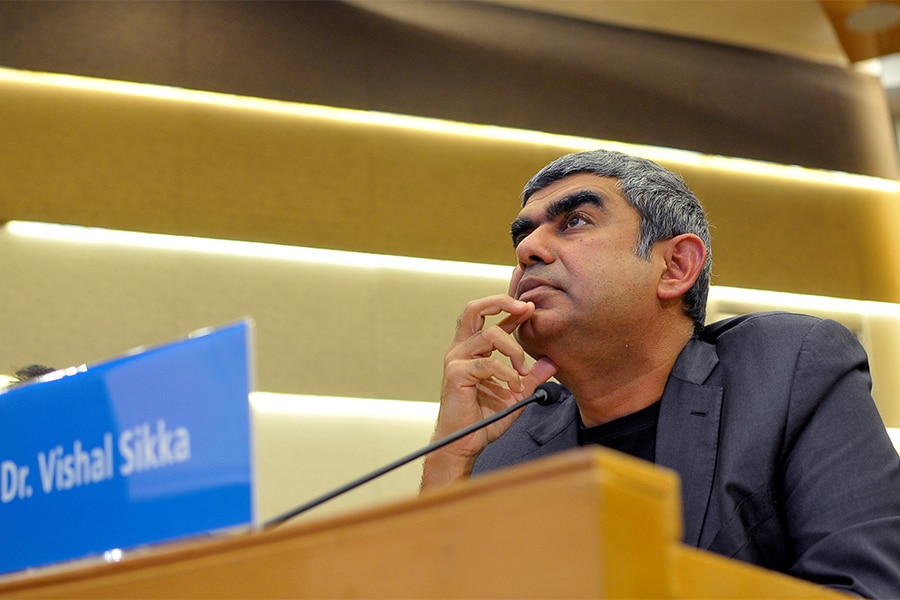
Infosys CEO Vishal Sikka: 'Drama in the media is very distracting'
Says company is committed to its strategy of seeking higher-margin growth

Infosys Ltd’s CEO Vishal Sikka told investors and analysts in Mumbai that his relationship with the Bengaluru IT giant’s founders was “wonderful,” even as a rift between the company’s first independent board and founder NR Narayana Murthy has become a very public spat.
“My relationship with the founders, it is wonderful. I meet Mr. Murthy quite frequently, I don’t meet the other founders that frequently,” Sikka responded to a question about the ongoing tussle at the company. He was speaking during the question-and-answer session after keynoting a conference organised by Kotak Securities on Monday.
“It’s an amazing relationship, always; I have a very heartfelt warm relationship with Mr. Murthy, I probably meet him four, five, six times a year, and he’s an incredible man,” Sikka said.
Sikka’s pay increase — from about $5 million when he joined in July 2014 to a target $11 million for the current fiscal year — granted by the board, led by chairman R. Seshasayee, was initially seen as one of the points of concern for Murthy and co-founders Kris Gopalakrishnan and Nandan Nilekani.
The 30-month severance package handed to former CFO Rajiv Bansal, who quit Infosys last year, however, seems to be the main point of contention, along with the severance money paid to the company’s former general counsel David Kennedy.
Sikka, however, brushed any differences aside on Monday: “All this drama that’s been going on in the media, you know, it is very distracting, it takes away attention, but underneath that there is a very strong fabric that this company is based on and it’s real privilege for me to be its leader,” he said.
Narayana Murthy brought in Vishal Sikka as the first non-founder chief executive in the company’s history in June 2014. It was also when the company, founded in 1981, got a board for the first time that wasn’t led by any of the founders, who voluntarily walked away from running the company, while remaining investors.
Earlier, Sikka reiterated the company’s strategy to try and capture large IT contracts from existing customers, while striving to provide more value to them via a combination of automation and artificial intelligence. That strategy is beginning to find traction, and the company has caught up with the industry growth rate, having started at a position where Infosys lagged its peers, when he took over two-and-a-half years ago, he said.
At a personal level, he was “disappointed” that the Indian IT sector hadn’t embraced AI to the extent he had hoped. It is a “stark reality” that many roles will vanish in the sector as automation takes hold, he said. Infosys itself had freed up effort worth about 8,500 full-time employees over the last three to four quarters. Productivity gained thus has to be poured into innovation, he said.
X





